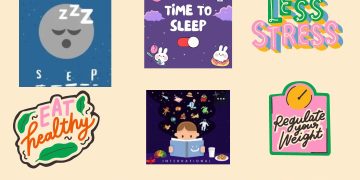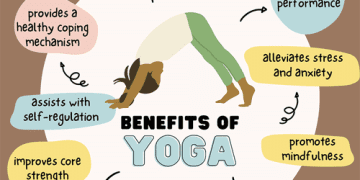Supporting Adolescents with Depression


Understanding teen depression
With the letter D for #BlogchatterA2Z here is how we can Supporting Adolescents with Depression. The adolescent years can be very taxing. Depression is a common problem that affects teenagers more often than we may realize. Studies prove that 1 in five teenagers from various backgrounds will face depression during adolescence. Sadly, although depression is treatable, most depressed teenagers do not get the help they need. Teenage depression goes beyond mood swings; a major health concern that influences every aspect of a teenager’s life. The good news is that we can treat teenage depression, and parents have a major role to play in this. You can help your teen overcome depression. Be watchful and step in to help as soon as possible. Offering support and consulting a professional can help them get better.
Is Your Adolescent Experiencing Depression?
Although it is normal for teenagers to have occasional mood swings or exhibit rebellious behaviour, depression is a different issue. Teenage depression goes beyond just feeling sad or moody. It can influence your teenager’s identity, resulting in an overpowering sense of sadness, hopelessness, or anger.
Certain disobedient or rude behaviours and brashness in teenagers can serve as signs of basic depression.
The following are examples of how teenagers may “act out” to cope with their emotional distress:
Permanently feeling negative emotions
Experiencing a negative mindset is a typical indicator of depression. Consistent bouts of crying, which arise from a strong feeling of hopelessness, often follow it. Yet, it is important to note that teenagers with depression may not always show sadness as their basic symptom. Instead, they may exhibit crankiness, rage, and nervousness more obviously.
Difficulties in school
These can arise because of depression. This mental health condition can lead to reduced energy levels and difficulties with concentration. As a result, students may bunk school, their academic experiencing performance may fall even if they were top graders.
Loss of interest in activities
This is a common sign that they are experiencing depression among adolescents. Beyond the school setting, you may notice that your teenager shows no enthusiasm for their earlier hobbies. They may resign from a sports team or hobby that they pursued before. Or distance themselves from their loved ones and acquaintances, and prefer solitude.
Running away
A considerable number of depressed teenagers flee from their homes or discuss the idea of running away. These actions are often an expression of their desperate plea for help.
Drug and alcohol abuse
Teens may turn to alcohol or drugs as self-medication to cope with their depression. Unfortunately, this only worsens their mental health instead of providing relief.
Low self-esteem
Depression can trigger and increase feelings of unpleasantness, disgrace, failure, and worthlessness.
Smartphone addiction
Teens may get addicted to social media as an escape from their problems. However excessive smartphone and internet use intensifies their isolation. This leads to severe depression.
Irresponsible behaviour
Depressed teens may turn to high-risk exploits: rash driving, binge drinking, and unprotected sex.
Violence
Some depressed teens—usually boys who are victims of bullying can turn aggressive and violent.
Sudden changes in sleep and diet
Teenagers going through depression may spend excessive time in bed or suffer from insomnia. In addition, you might observe that your teen is engaging in binge eating or showing a lack of appetite.
Things Parents Can Do
Parents can help their children by ignoring the stigma around mental health. They can seek advice from their family physician for treatment recommendations. Parents may worry about their mental well-being. They should share these concerns with their doctor. Getting help from trusted friends or family is important during tough times.
Depression Varies
Depression doesn’t look the same for everyone. Treatment depends on the severity of the condition and coexisting mental disorders. Moreover, the individual’s treatment preference is vital in deciding the most suitable method to go ahead.
Therapeutic Approaches
Based on studies, therapies for depression are not the same. One particular therapy is cognitive behavioural therapy or CBT. It has been effective in helping children understand their depressive thoughts. Adolescents can develop the ability to alter these cognitive patterns with CBT and interpersonal therapy. These approaches have proven their effectiveness in addressing depression.
Consider Medication
Some teenagers may benefit from taking medication like Prozac. These safe medications lower suicide rates. Their usage depends on severity and associated illnesses. A physician, adolescent medical professional, or psychiatrist may prescribe them for your child.
Sleep, Nutrition, and Exercise
Getting enough sleep is crucial for teenagers, as a lack of sleep is a sign of worsening depression. Balancing sleep schedules is difficult for adolescents attending school. Teenagers do not have enough cognitive energy to manage their depression without sufficient sleep.
Learn The Fundamentals of Suicide Prevention
Depression is a risk factor for suicide. Discussing suicide with your child does not mean they will attempt it. Prevention means seeking help for your child’s depression. Finally, open and supportive communication within your family is a crucial method of preventing suicide.
I’m participating in #BlogchatterA2Z









